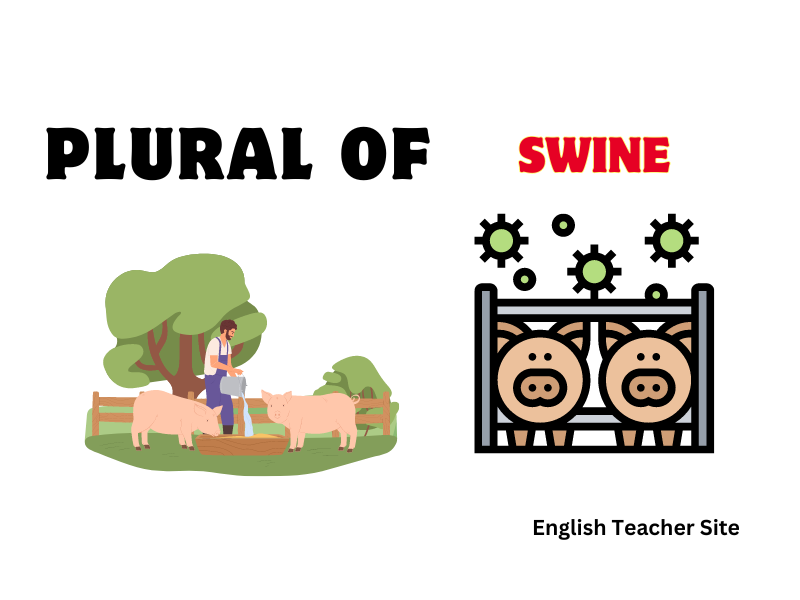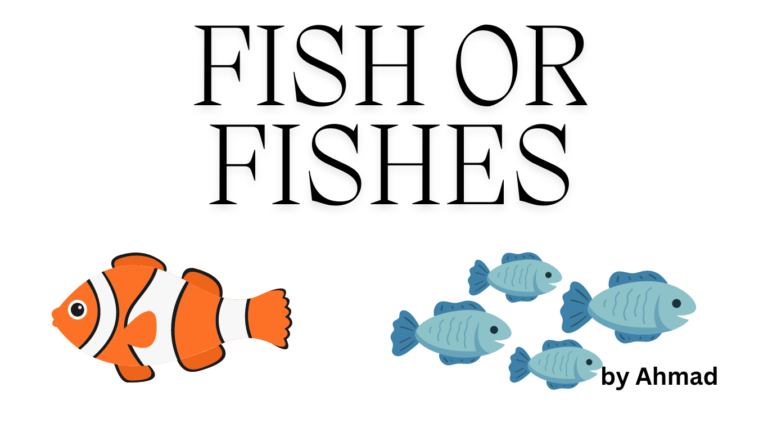What’s the Plural of Swine: Exploring Singular and Plural Nouns

- “Swine” maintains the same form in both singular and plural contexts.
- The word originates from Old English and is used to refer to a pig or pigs.
- Understanding the correct usage of “swine” is necessary for clear communication.
The English language contains a plethora of nouns that maintain the same form whether they’re in the singular or plural. One such word that often causes confusion is “swine.” Frequently used to refer to a pig, the noun “swine” traces its origins from Old English and has peculiar properties in its usage, especially in its plural form. It is essential for students and writers alike to understand both the singular and plural forms of the word to use it correctly in various contexts.
What’s the Plural of Swine?
When referring to one or multiple members of the pig family, ‘swine’ remains constant. However, in less formal contexts or when used pejoratively to refer to contemptible persons, the plural ‘swines’ may sometimes be encountered.
Grammatical References:
| Singular | Plural |
|---|---|
| Swine | Swine |
| (a pig) | (pigs) |
Examples in Sentences:
- The farmer has one swine.
- The herd consists of twenty swine.
Contextual Variations:
- Informal: “Look at all the swines in the field!”
- Formal: “The swine are grazing peacefully.”
Singular Form of Swine
In the English language, the term swine serves as both singular and plural. However, its usage can be intriguing due to its linguistic characteristics.
| Singular Use | Example Sentence |
|---|---|
| Swine | The farmer said that the swine needs feeding. |
| Plural Use | Example Sentence |
|---|---|
| Swine | The herd of swine was impressive in size. |
Understanding Swine
Swine Defined:
- Singular Use: Refers to a single pig, either wild or domesticated.
- Plural Use: Also refers to a group of pigs without alteration to the term.
Usage Table:
| Number | Term |
|---|---|
| 1 | Swine |
| 2+ | Swine |
Aside from the standard pluralization, there is a permissible secondary plural, “swines”, which is sometimes utilized.
Contextual Examples:
| Singular | Plural |
|---|---|
| A swine is foraging in the field. | Several swine are foraging together. |
| — | Swines roam this vicinity. |
In literature and conversational English, “swine” often connotes a pejorative meaning beyond its zoological reference, extending to individuals regarded contemptibly.
Usage in Sentences:
- He was considered a swine by his detractors.
- They were unkind and acted like swine.
Summary Table:
| Term | Context | Meaning |
|---|---|---|
| Swine | Zoological | Pig(s) |
| Swine | Pejorative | Contemptible person(s) |
Nouns with Unchanged Singular and Plural Forms
Below are tables illustrating some common nouns that do not change when they become plural.
Table 1: Animals with Unchanged Singular and Plural Forms
| Singular | Plural |
|---|---|
| swine | swine |
| sheep | sheep |
| deer | deer |
| fish | fish |
| species | species |
Table 2: Other Nouns with Unchanged Singular and Plural Forms
| Singular | Plural |
|---|---|
| aircraft | aircraft |
| series | series |
| species | species |
| headquarters | headquarters |
- Crafts: singular — spacecraft, plural — spacecraft
- Means of transportation: singular — hovercraft, plural — hovercraft
- Moose: is both the singular and plural form
Sentences with the Word Swine
Here are examples of sentences employing the word “swine”:
Singular Usage:
- “The farmer noticed that a swine had escaped from the pen.”
- “She adopted a swine as a pet after visiting the animal sanctuary.”
Plural Usage:
- “The herd of swine was seen foraging in the field.”
- “During the fair, they displayed various breeds of swine.”
Below are tables demonstrating the use of “swine” in agriculture-related and metaphorical language:
Agricultural Context:
| Singular | Plural |
|---|---|
| The swine requires vaccination. | The swine need to be fed twice a day. |
| A swine won first prize at the show. | There were twenty swine in the new barn. |
Metaphorical Language:
| Singular | Plural |
|---|---|
| He called the thief a swine. | They were branded swine by the press. |
| She referred to the scoundrel as a swine. | They depicted politicians as swine in the cartoon. |
Origin of the Word Swine
The term “swine” traces its etymology back to early linguistic roots. It’s derived from the Old English swīn, which stood for both the singular and plural forms of the animal. The word has Germanic connections, akin to Old Saxon and Old High German ‘swin’, which eventually gave rise to the Modern German ‘Schwein’.
The Proto-Germanic *swiną is believed to be the ancestor of the word, which can be linked even further back to the Proto-Indo-European root *suH-, meaning ‘pig’. This reflects a common method of word formation in many Indo-European languages, where animal names are often derived from characteristic sounds or behaviors.
| Language Family | Term | Meaning |
|---|---|---|
| Proto-Indo-European | suH- | pig |
| Proto-Germanic | swiną | |
| Old English | swīn | pig |
| Old High German | swin |
Over time, “swine” evolved in English to refer not only to the animal itself but also to convey derogatory connotations when referring to human behaviors.
- Use in Old English: Primarily referred to the animal.
- Modern English: A domesticated pig; occasionally used as a derogatory term.
Sources
My name is Khamis Maiouf. I am the creator of the English Teacher Site, dedicated to providing valuable resources and insights for students around the world. With a passion for education and a commitment to helping students enhance their skills, I aim to make English teaching more effective and enjoyable for both educators and students.






